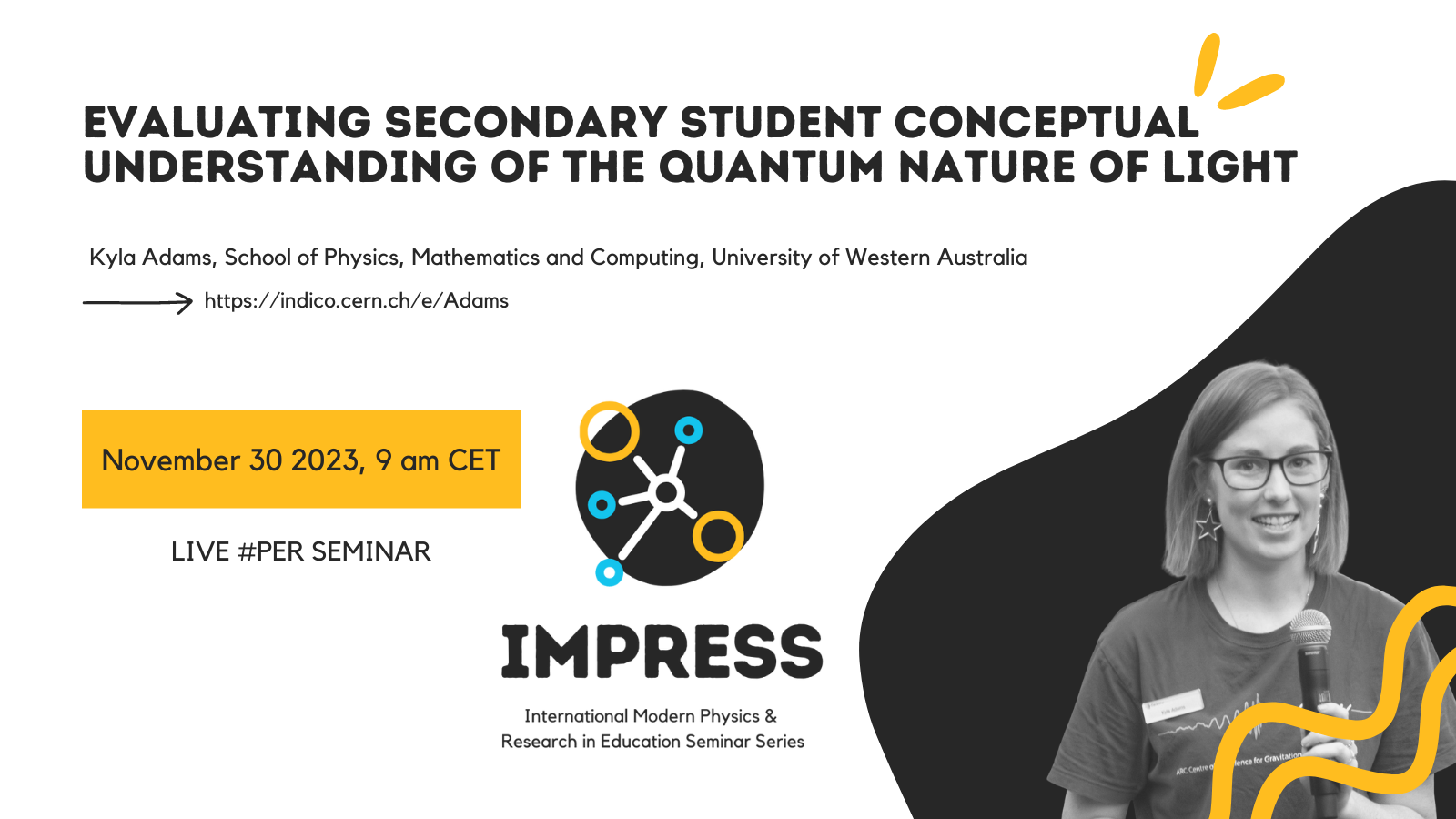Evaluating secondary student conceptual understanding of the quantum nature of light
by
Abstract
A significant challenge in modern physics education in classrooms is the potential contradiction between existing curricula and new content. Addressing these contradictions involves considering teachers, students, and our approach to conceptual change.
Einstein-First, an Australian research group, is developing a modernised Year 3-10 curriculum that presents Einsteinian physics concepts in an accessible and engaging manner. We follow the model of educational reconstruction to develop lesson plans and implement a pre/post-test design.
My research focuses on developing Year 9 physical science content and facilitating student understanding. My most recent teacher-presented trial was a series of 8 lessons that covered diverse topics from quantum descriptions of light to real-world applications in parallel to the existing curriculum. Early analysis of the pre/post-test data reveals strides in students' application of Einsteinian physics concepts and usage of related language, suggesting conceptual change. However, some responses indicate potential conceptual conflicts, potentially because of the parallel lessons.
While the preliminary findings are promising, the potentially confusing circumstances underscore the need to thoughtfully integrate modern physics concepts into mainstream education. This session will offer insight into the initial findings of my research and strategies to minimise confusion during the trial. The discussion will then pivot towards addressing key questions, including:
- How should teachers modify their instruction methods when introducing new concepts that could potentially contradict existing curriculum content?
- How can existing curricula be more flexible to accommodate new approaches without undermining current teaching methods or compromising learning objectives?
- How do we approach conceptual change in students without causing cognitive dissonance?

Magdalena Kersting (Department of Science Education, University of Copenhagen, Denmark) and Julia Woithe (Science Gateway Education, CERN, Switzerland)